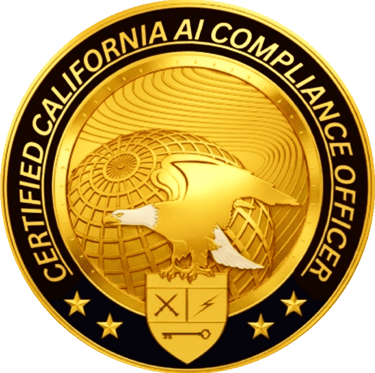Constructing Robust AI Policy Across All Sectors: An Exhaustive Guide for Nonprofits and Healthcare Providers
Artificial intelligence (AI) is transforming organizations across the spectrum—from social services and education to healthcare and legal aid. With this rapid change comes a critical need for strong, clear AI policies that protect privacy, ensure fairness, and maintain compliance with California’s evolving regulatory landscape.
For nonprofits and healthcare providers—organizations that serve vulnerable populations and operate under tight budget constraints—building and sustaining comprehensive AI policies is both a moral imperative and a legal necessity.
This exhaustive guide breaks down how to construct effective AI policies tailored for all sectors, with special emphasis on California’s mission-driven nonprofits and healthcare providers, ensuring they navigate compliance, ethics, and operational needs successfully.
Why Sector-Specific AI Policy Is Necessary
AI impacts different sectors in distinct ways:
Nonprofits focus on social justice, client confidentiality, community engagement, and equitable service delivery.
Healthcare providers must prioritize patient privacy (HIPAA), diagnostic accuracy, informed consent, and risk management.
Education, small businesses, and public agencies face their own unique data use, equity, and transparency challenges.
A one-size-fits-all approach risks neglecting essential regulatory nuances, ethical considerations, and operational realities of each sector.
Step 1: Define the Purpose and Scope of Your AI Policy
Start by clearly stating:
Why your organization needs an AI policy—protecting clients, meeting legal mandates, ethical stewardship.
What AI systems and processes the policy covers (e.g., client intake AI, predictive analytics tools, generative AI).
Applicable laws and regulations (e.g., California SB 942, AB 2013, CPRA, HIPAA for healthcare, FEHA for employment).
Personnel and roles responsible for AI governance within your organization.
Outcome: A living document’s foundation specifying its intent, relevant AI use cases, and regulatory scope.
Step 2: Establish Clear Principles for Ethical AI Use
Formulate core principles that guide AI deployment such as:
Transparency: Clear disclosure of AI use in decision-making or communications.
Fairness and Non-Discrimination: Commit to bias audits and equitable treatment of all clients.
Privacy and Data Protection: Compliance with CPRA, HIPAA, and sector-specific privacy rules.
Accountability and Oversight: Define review cycles, incident reporting, and compliance monitoring.
Community Engagement: Involve stakeholders, especially underserved populations, in policy development and updates.
These principles set the ethical tone and direct operational policy decisions.
Step 3: Develop Sector-Tailored Compliance and Operational Sections
For Nonprofits:
Client Data and Consent Management: Procedures ensuring personal data collection and AI use comply with privacy laws and obtain informed consent, especially for vulnerable populations.
Bias Mitigation in Service Delivery: Regular review of AI models to prevent discrimination based on race, gender, disability, or economic status.
Transparency with Funders and Clients: Clear communication about AI’s role in service eligibility, client assessments, or resource allocation.
AI Incident Response: Defined protocols for addressing AI failures or complaints, including whistleblower protections.
For Healthcare Providers:
HIPAA-Aligned Data Safeguarding: Encryption, access controls, and audit trails for all AI training and operational data.
Clinical Validation and Risk Management: Ensuring AI diagnostic or treatment tools meet clinical safety standards and are continuously validated.
Patient Consent and Rights: Transparent patient communications about AI use and options to opt-out where feasible.
Interdisciplinary Oversight: Collaborative governance involving clinicians, legal, IT, and compliance officers.
Step 4: Specify Roles, Training, and Certification
Define organizational roles such as AI Compliance Officer (ideally CCAICO™ certified), data stewards, IT security leads, and executive sponsors.
Mandate ongoing training programs tailored to sector-specific AI legal and ethical requirements.
Require certification refreshers aligned with evolving California laws and technological developments.
This ensures sustained expertise and accountability.
Step 5: Implement Monitoring, Reporting, and Continuous Improvement
Establish key performance indicators (KPIs) for AI policy compliance and ethical outcomes.
Schedule routine bias audits, privacy risk assessments, and regulatory compliance reviews.
Provide accessible channels for internal and external reporting of AI-related issues.
Integrate feedback from clients, staff, and regulators into policy updates and staff training.
An iterative process guarantees policies remain practical and effective.
Step 6: Documentation, Transparency, and Public Accountability
Maintain comprehensive records of AI system specifications, data sources, audit reports, and incident logs.
Develop public-facing transparency reports addressing AI use, compliance efforts, and outcomes.
Align documentation with California’s disclosure mandates (such as SB 942 public transparency and AB 2013 training data disclosures).
Transparency builds trust and demonstrates compliance.
Sector-Specific AI Policy Highlights in Summary
SectorKey Focus AreasCritical Policy ComponentsNonprofitsPrivacy, fairness, consent, community engagementClient confidentiality, bias audits, transparency to funders and clientsHealthcarePatient privacy (HIPAA), clinical risk, consentData encryption, clinical validation, interdisciplinary oversightEducationStudent data privacy (FERPA), equityInformed consent, bias mitigation, transparency in AI-driven assessmentsPublic AgenciesPublic accountability, transparencyOpen data standards, public reporting, lawful AI use standardsSMBsEmployment nondiscrimination (FEHA), consumer privacyBias audits in hiring, consent management, data minimization
Why This Matters — And Will Matter More
California’s pioneering AI policies create the most advanced regulatory environment in the U.S., and the stakes have never been higher:
Protecting civil rights and preventing AI-driven harm.
Safeguarding individual privacy in an AI-driven world.
Maintaining organizational legitimacy with regulators, communities, and funders.
Building an agile workforce able to adapt rapidly to technological and legal change.
Constructing and sustaining robust, sector-appropriate AI policies is not optional—it is foundational to organizational mission success and public trust.
How AICAREAGENTS247 Supports You
Our organization specializes in:
Crafting tailored AI governance frameworks for nonprofits and healthcare providers.
Delivering affordable, accessible training and certification (CCAICO™) to build internal AI compliance expertise.
Providing up-to-date digital policy toolkits and consulting services aligned with California laws.
Supporting ongoing compliance through mentorship, monitoring tools, and community engagement.
Together, let’s build a future where technology uplifts underserved communities—fairly, transparently, and ethically. Contact AICAREAGENTS247 to begin crafting your organization’s AI policy today.
Email: aicareagents247@gmail.com
Phone: (213) 679-5177
Website: www.aicareagents247.comWrite your text here...

